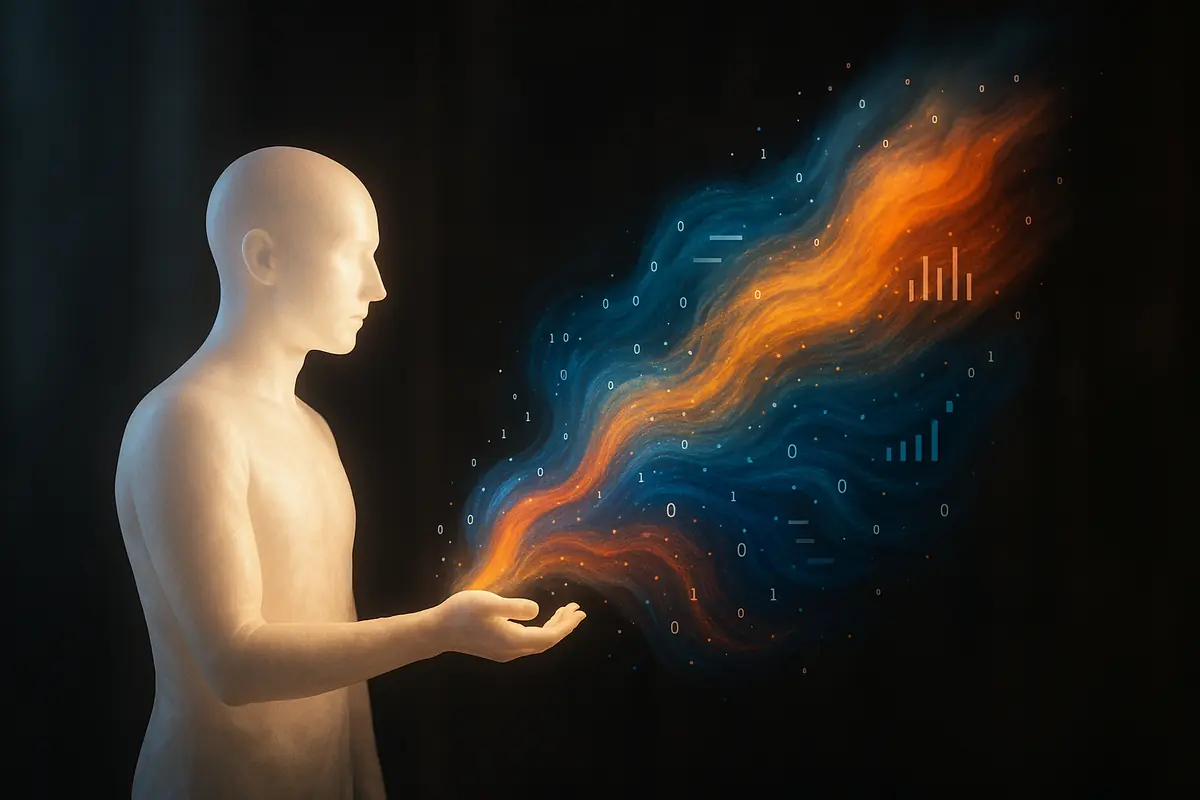When AI Stops Predicting and Starts Creating
Explore how generative AI is moving beyond prediction — imagining new possibilities, reshaping creativity, and redefining what it means to think.

Most AIs learn from the past — but a new wave is learning to imagine futures we’ve never seen.
Welcome to the age of generative intelligence, where machines aren’t just calculating outcomes but creating ideas.
For decades, artificial intelligence was about prediction. Algorithms processed oceans of data to forecast the next move in chess, the next stock trend, or the next word in a sentence. Everything hinged on what already existed — history, patterns, and probabilities. These systems were mirrors of the past, not windows to the future.
Then came a breakthrough: generative models. Tools like diffusion systems and large language models flipped the script. Instead of simply analyzing data, they began to create from it. They painted images, wrote poetry, composed music, and even designed prototypes — blending statistical logic with sparks of something that feels a lot like imagination.
Think about it: when an AI writes a story, it isn’t copying anyone’s words. It’s remixing billions of fragments into something new. The result may be imperfect, but it’s undeniably creative — and that’s a massive leap forward.
This shift also changes how we interact with technology. AI used to be an obedient assistant: we asked questions, it fetched answers. Now, it’s a collaborator. It suggests, interprets, and even challenges our thinking. That’s why designers brainstorm with AI tools, researchers use them for discovery, and musicians co-compose tracks with digital partners. The boundary between tool and teammate is blurring fast.
But creativity comes with responsibility. Generative systems reflect the data we feed them — biases, errors, and all. As we teach machines to imagine, we must also teach them to imagine ethically. Regulation, transparency, and digital literacy are becoming as essential as innovation itself.
And here’s the twist: maybe AI’s greatest gift isn’t its ability to outthink us, but to expand what thinking means. When we collaborate with machines that dream in data, we glimpse new versions of ourselves — faster, bolder, and more curious.
So perhaps the future of AI isn’t about replacing human creativity. It’s about amplifying it — giving us new tools to explore ideas we couldn’t reach alone. In the process, we may discover that intelligence, human or artificial, was never just about prediction. It was always about possibility.
Maybe that’s the true evolution — not smarter machines, but a smarter partnership between minds, silicon or otherwise.